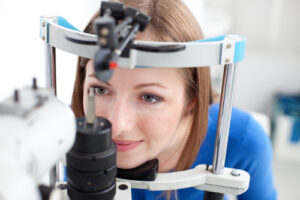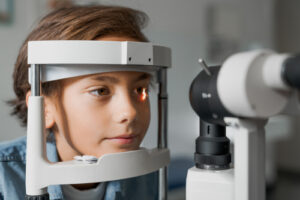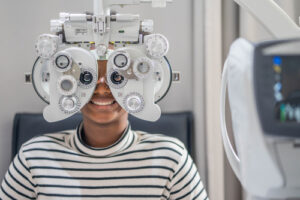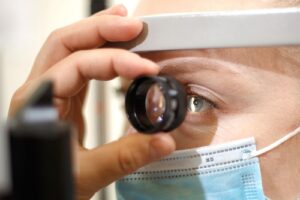There are a lot of things you can do to maintain the health of your eyes on your own. Getting advice from a professional is something you can’t replace, though.
Regular eye appointments are essential for the health of your eyes and your vision. Skilled eye doctors can spot problems before they cause vision damage and create an effective treatment plan.
If it’s been a while since your last visit, get in touch with Ellis Eye in San Jose, CA, to stay on top of your vision health. Keep reading to learn more about when you should see your eye doctor!
How Often Should I See An Eye Doctor?
Seeing an eye doctor regularly is important, but how often is regularly? The answer depends on various factors.
Age is probably the most significant factor to consider. Young children often need annual checkups because their vision changes fast.
Older people need annual checkups because they are at a higher risk of developing certain eye conditions. Young adults under forty can get away with seeing an eye doctor less often.
However, they should still schedule one every once in a while to ensure their eyes are healthy and their vision is clear. You will also need to have eye exams more often if you have other risks.
A family history of eye disease, diabetes, smoking, and certain medications can make you prone to eye problems. Be open with your eye doctor during your next exam so they can get a good idea of your needs and recommend intervals in which you should be seen.
What Should I Ask My Eye Doctor?
It’s good practice to arrive at your eye exam with some questions to ask your eye doctor. Some examples of questions you may want to ask include:
Why is my Vision Blurry?
Give them details on your symptoms so they can look for issues during the exam. Early detection can save you from vision loss and more complex treatments.
Why Are My Eyes Dry?
Dry eye affects between 16 million and 49 million Americans. If you notice a persistent problem, your doctor can come up with a solution.
Is LASIK right for me?
LASIK is a very popular surgical method of permanent vision correction. Those who qualify for the procedure are able to reduce their dependence on glasses and contact lenses.
To schedule the LASIK procedure, you must first have a LASIK consultation. Your doctor can tell you if LASIK is a good option for permanent vision correction or if another surgery might be better for you.
What Can I Do At Home to Help my Eye Health?
Certain lifestyle habits can lead to eye problems. Your doctor can give you recommendations based on your needs.
These recommendations can be as simple as wearing the right sunglasses outside or as in-depth as altering your home to fight dry eye.
What Other Symptoms Should I Watch Out For?
If you have a family history of certain eye conditions, you should know what signs to look out for. Sensitivity to light, double vision, and color vision changes are just a few things your eye doctor may ask you to pay attention to.
What Should I Expect During A Comprehensive Eye Exam?
Comprehensive eye exams test many different parts of your vision. The idea is to give your eye doctor as much information as possible.
Because your eye doctor wants to be as thorough as possible, it can take almost two hours to complete one. There is a lot of ground to cover during a comprehensive eye exam, but here are some of the most common tests.
Visual Acuity Test
A visual acuity test is used by eye care professionals to test vision. During this test, your eye doctor will have you sit twenty feet away from a chart of letters.
Each row of letters gets smaller as you go down the chart. The task is to read as many letters as possible until they become too blurry or small to make out.
This test gives the doctor a baseline reading of your vision and helps them understand whether or not you may need a prescription to see your best.
Refraction
A refraction test is a test your eye doctor can perform to determine the prescription you may need to correct your vision. During this test, your eye doctor will show you a series of lenses and ask you to tell them which lens is more clear.
This process will repeat numerous times until your eye doctor feels confident they have found the best prescription to correct your vision.
Eye Pressure Test
Eye pressure testing is an essential part of a comprehensive exam because pressure levels outside the normal range can be indicative of glaucoma. Glaucoma often does not present symptoms in the early stages, except for gradual vision loss.
Often, the vision loss is so slow that you may not notice it until it is too late. Any vision loss due to glaucoma is permanent.
For this reason, it is important to test eye pressure at each visit. If your eye doctor detects elevated eye pressure levels, they may perform additional testing to determine if you have glaucoma.
Slit Lamp Exam
A slit lamp is a powerful microscope that your eye doctor uses to examine the many structures of your eyes. During this test, your eye doctor is able to detect changes that may indicate certain eye conditions.
Is it time for you to have a comprehensive eye exam? Schedule an appointment at Ellis Eye in Santa Clara, CA, today!





